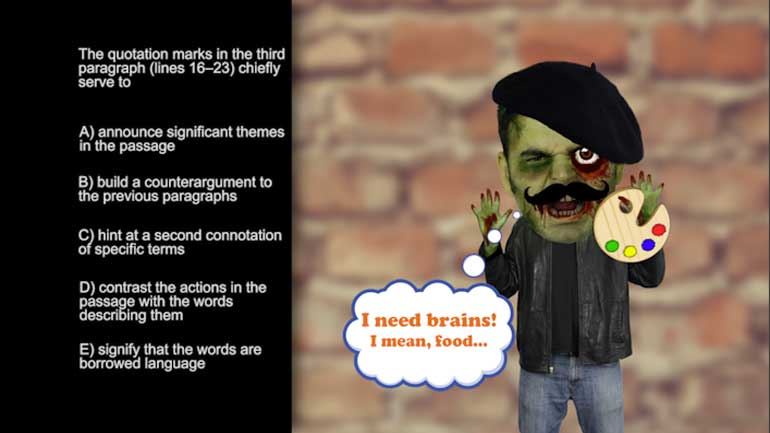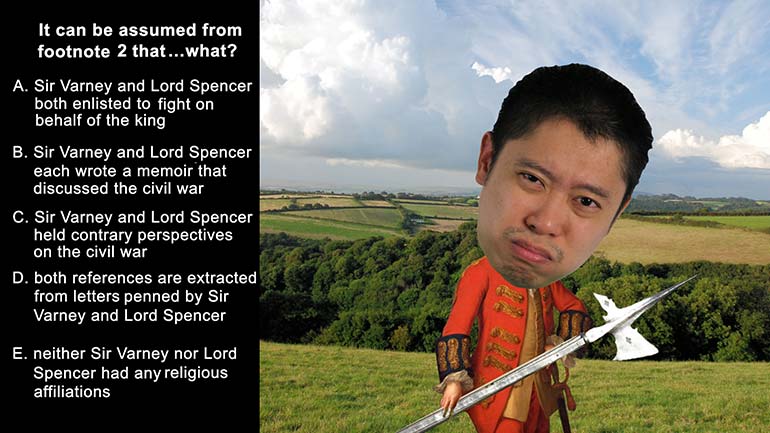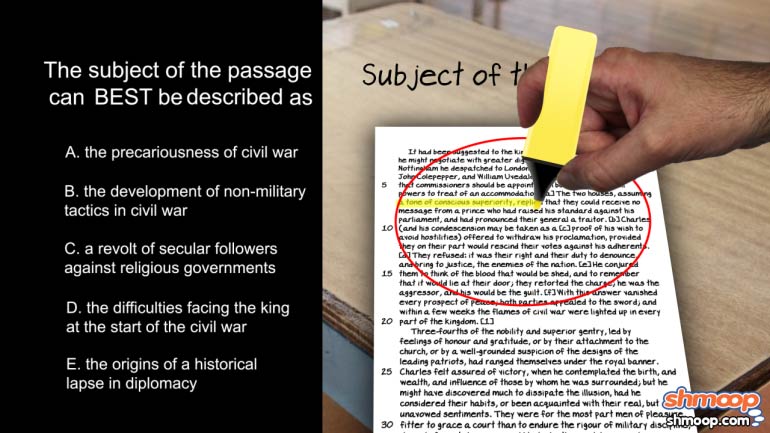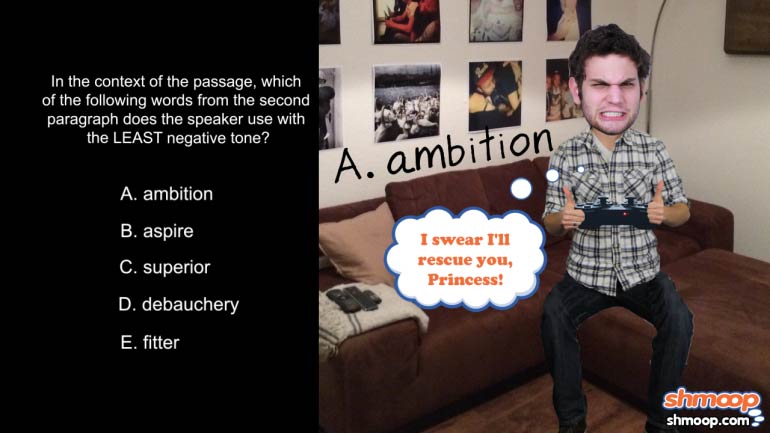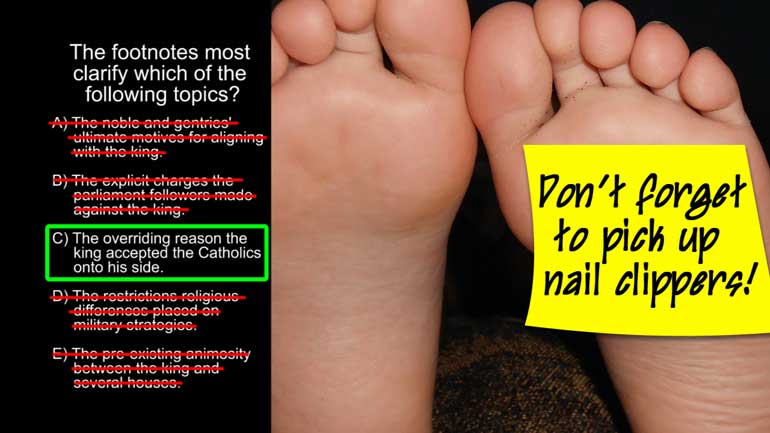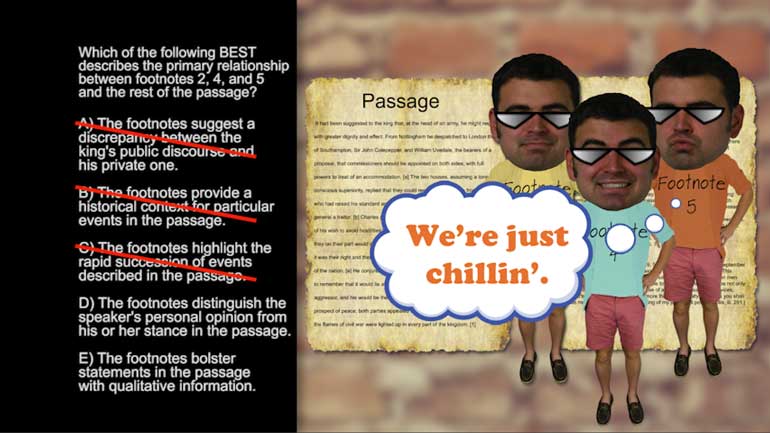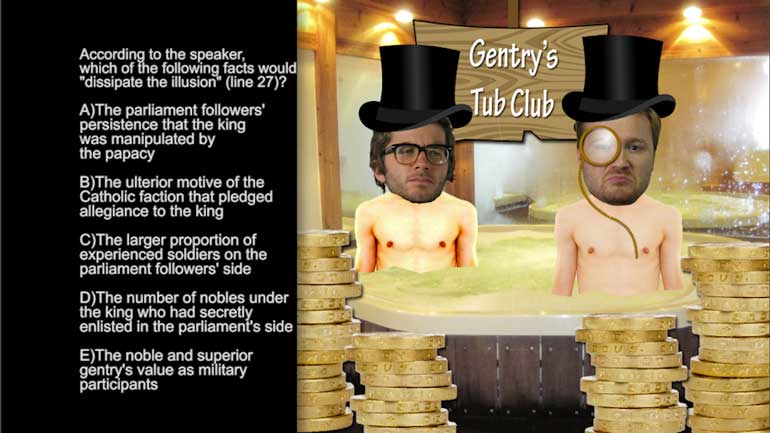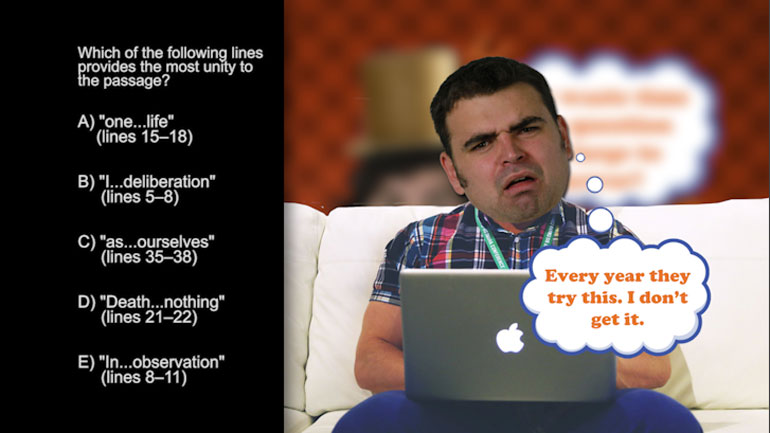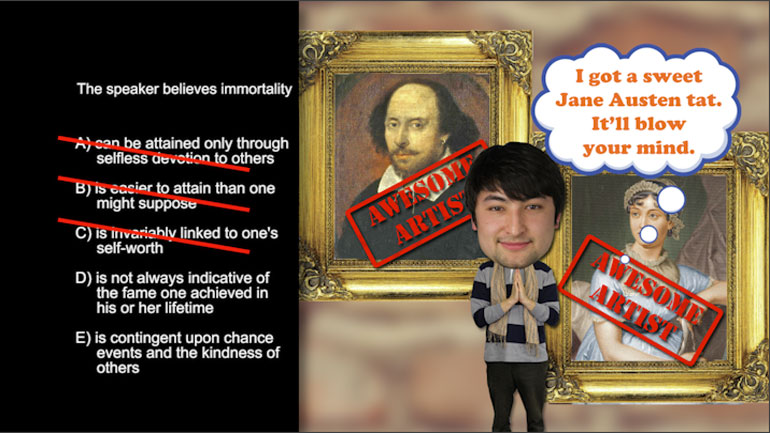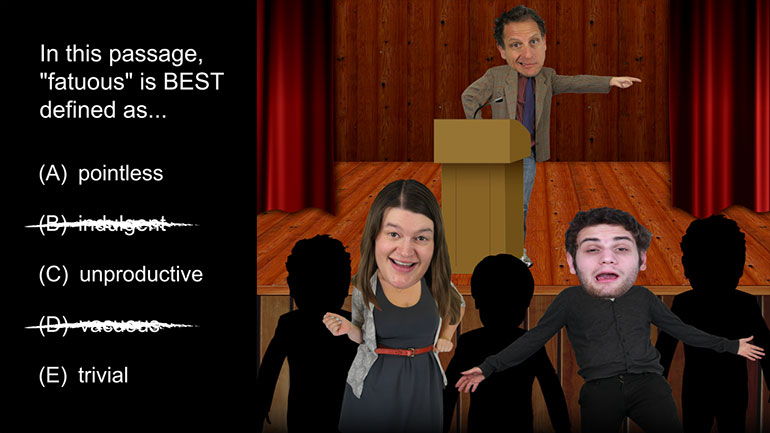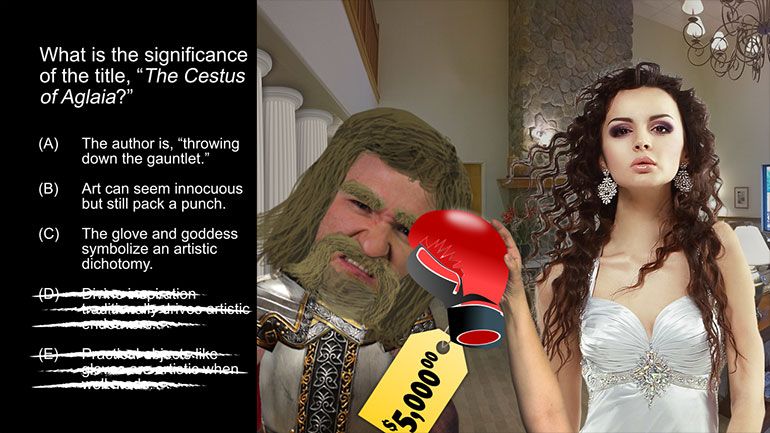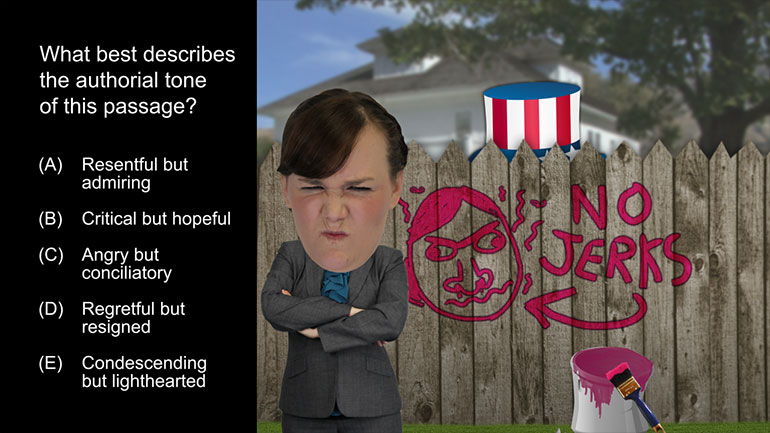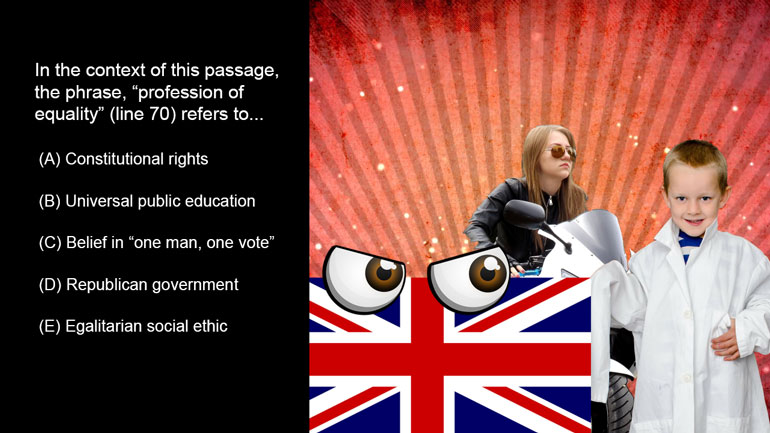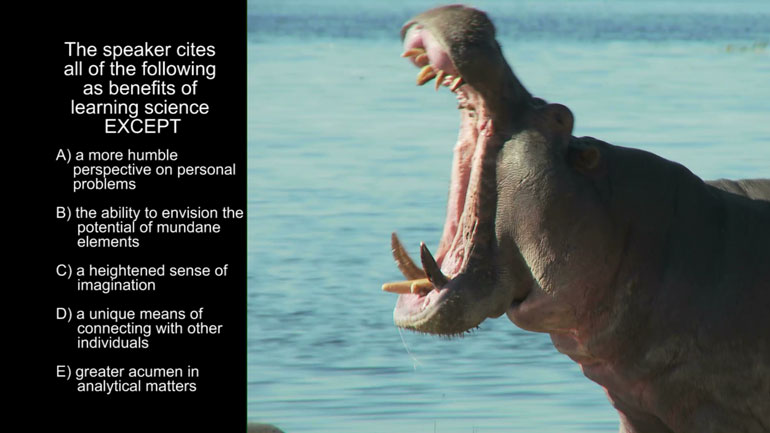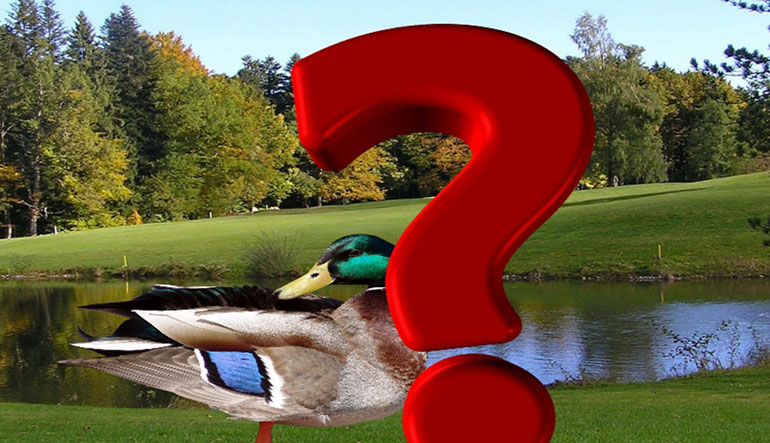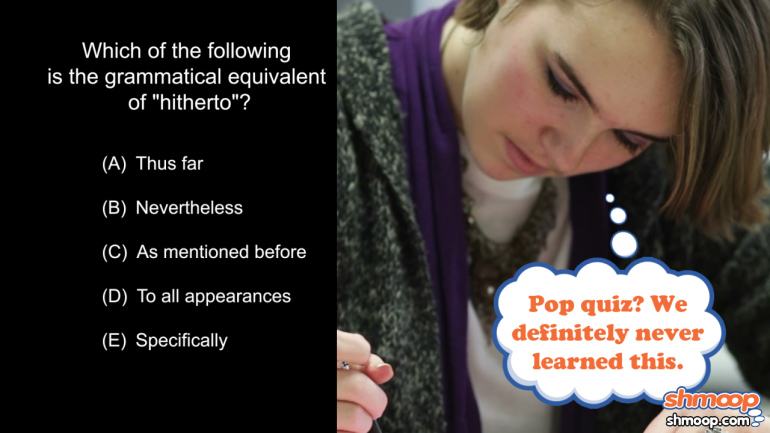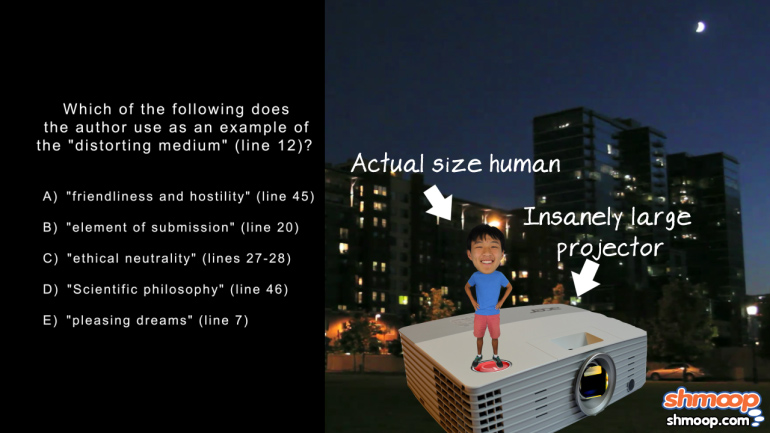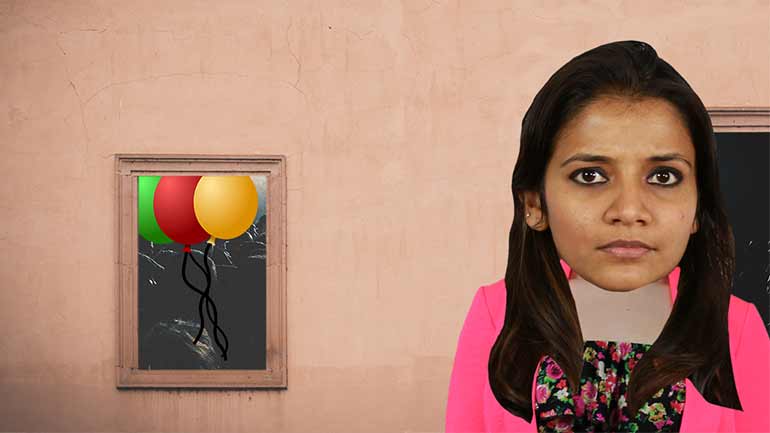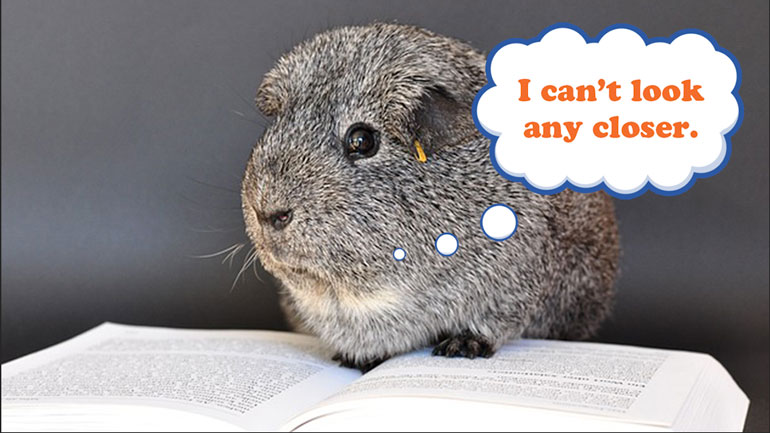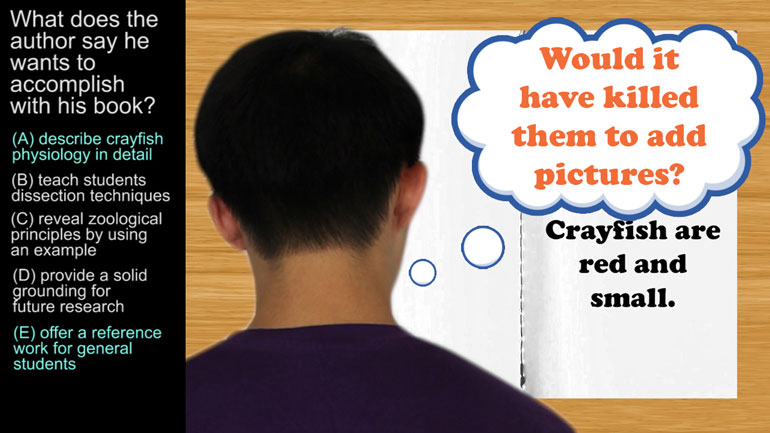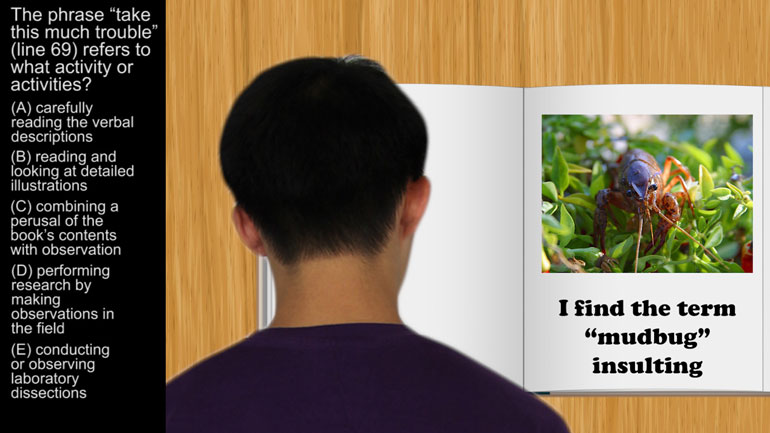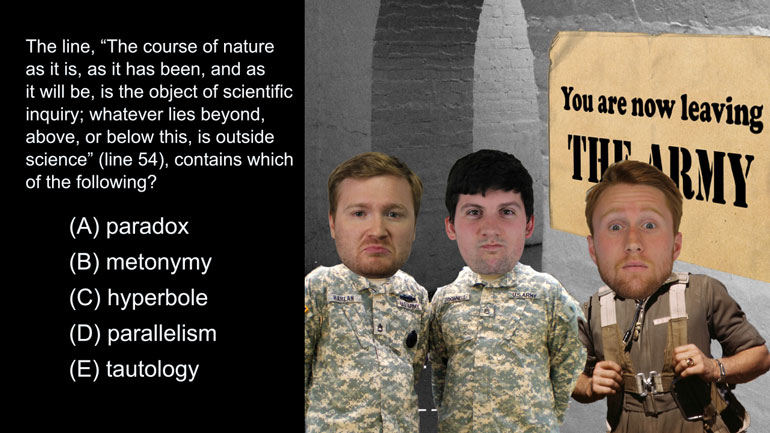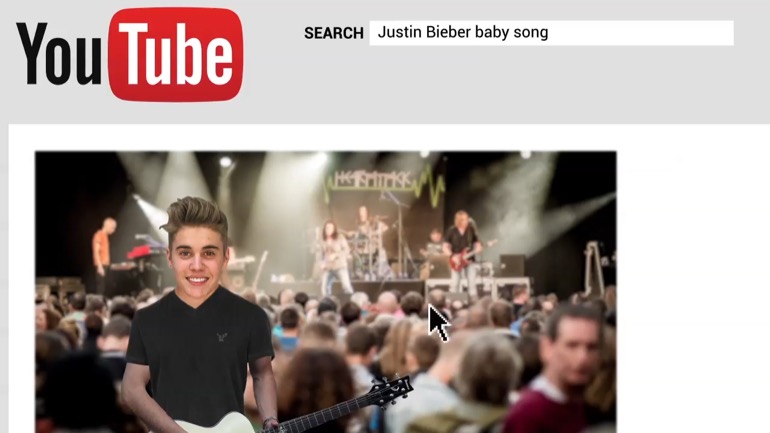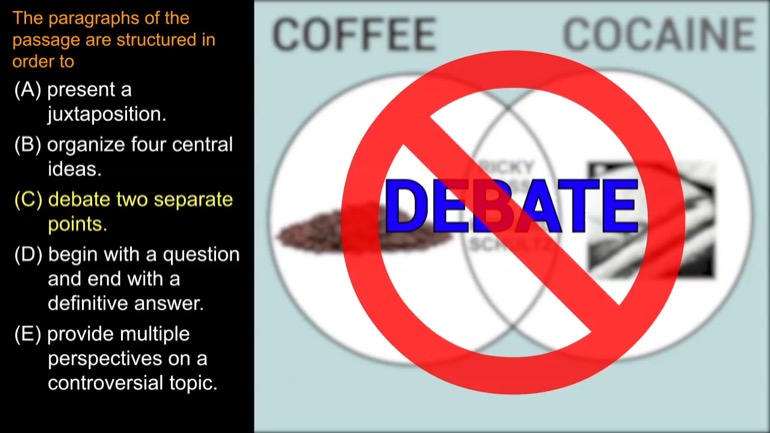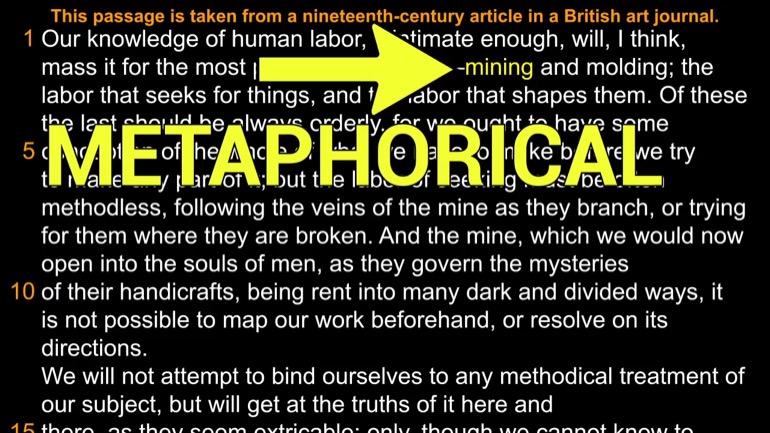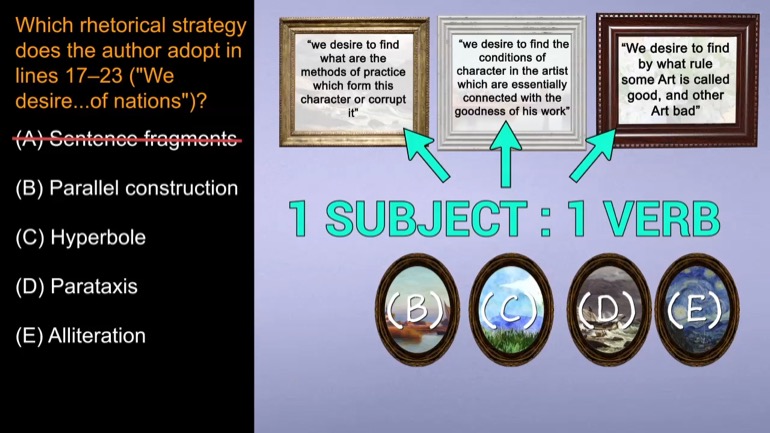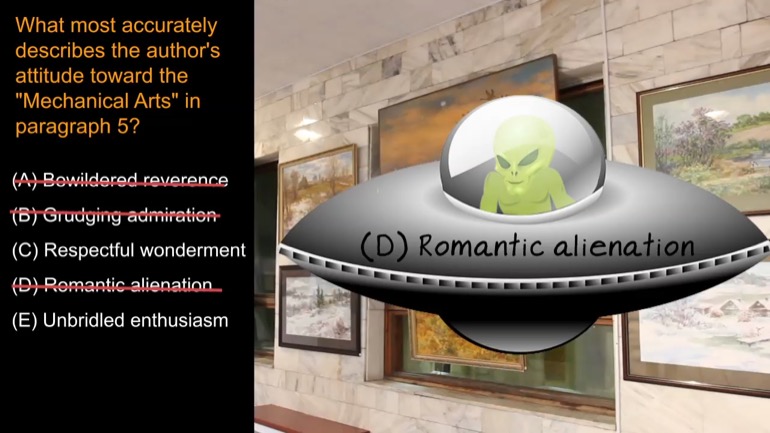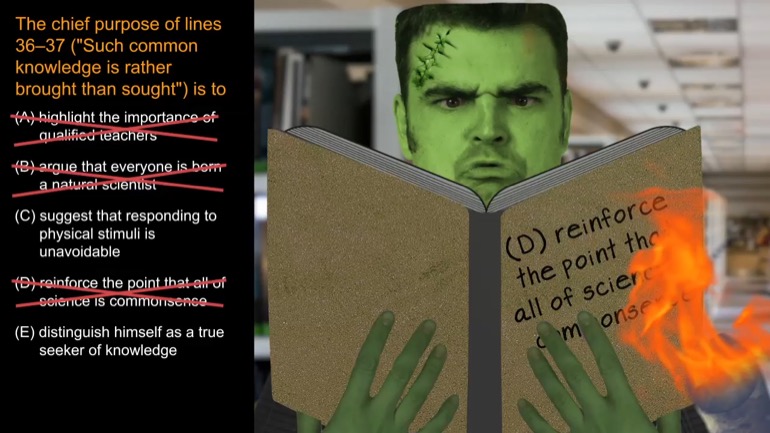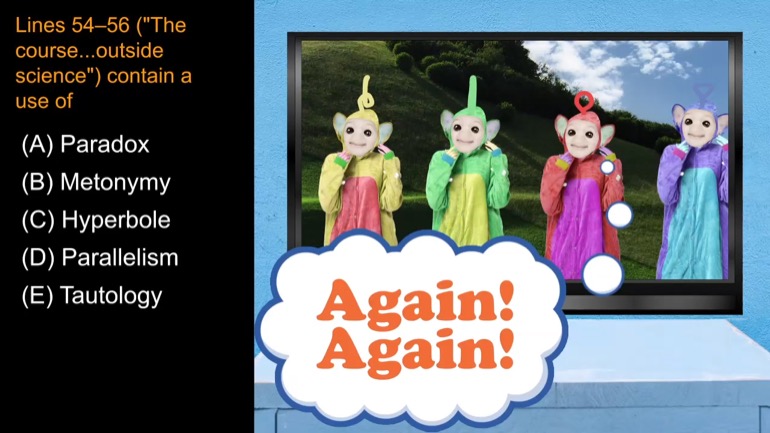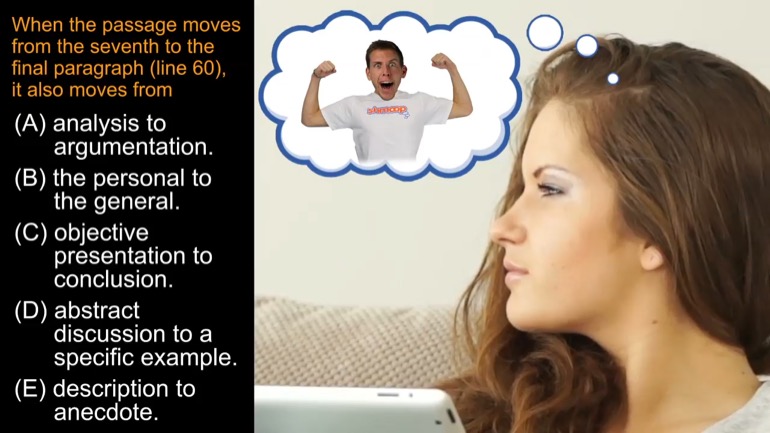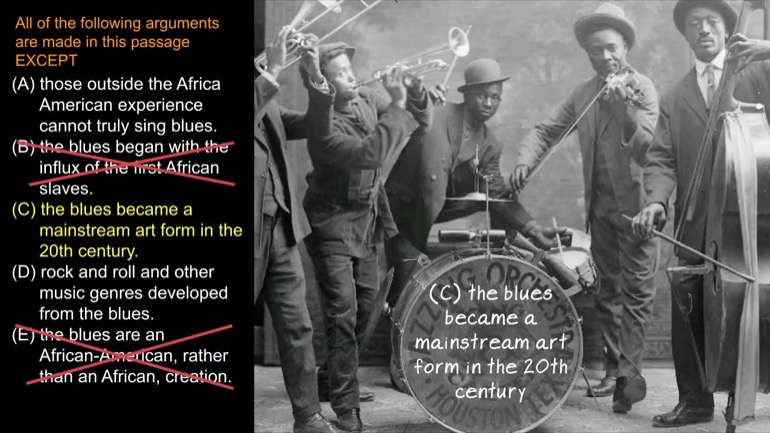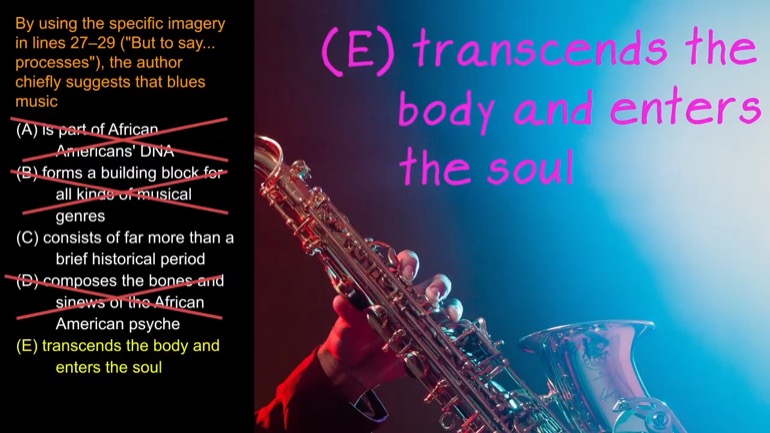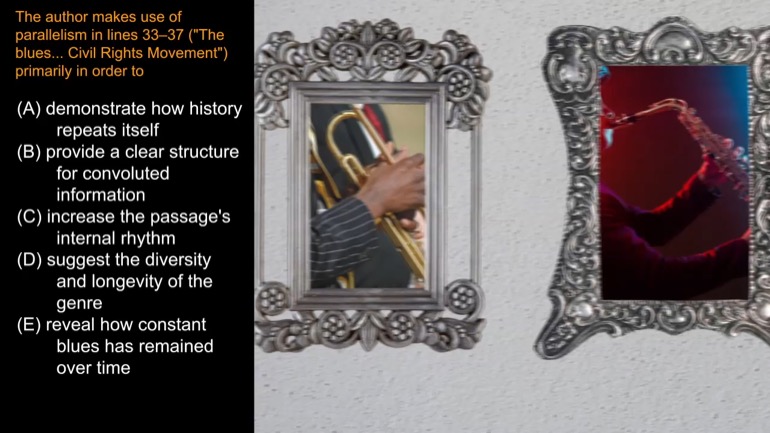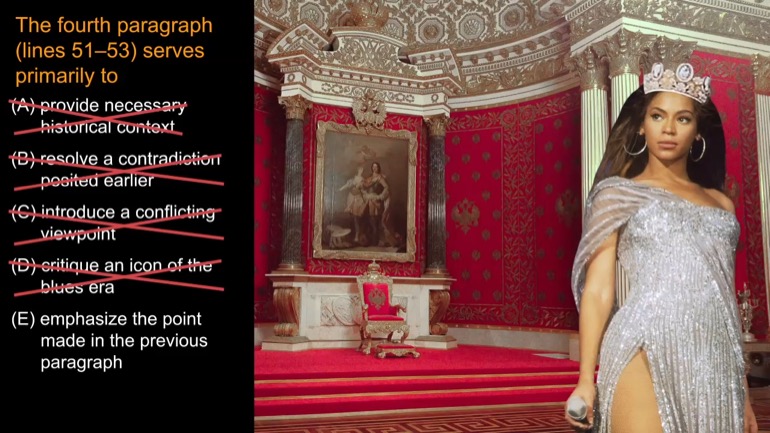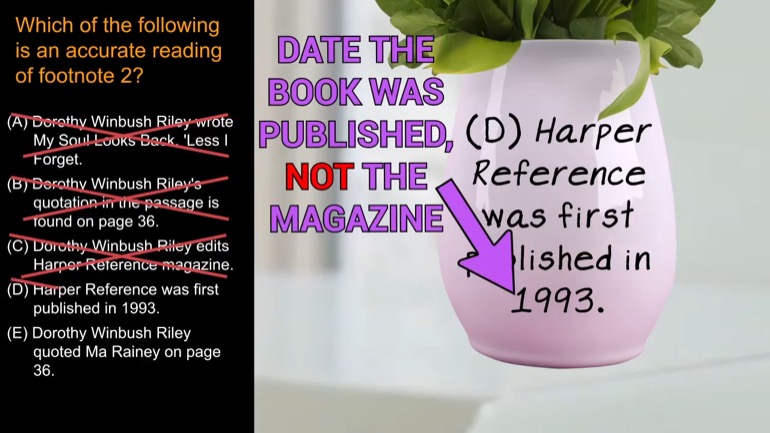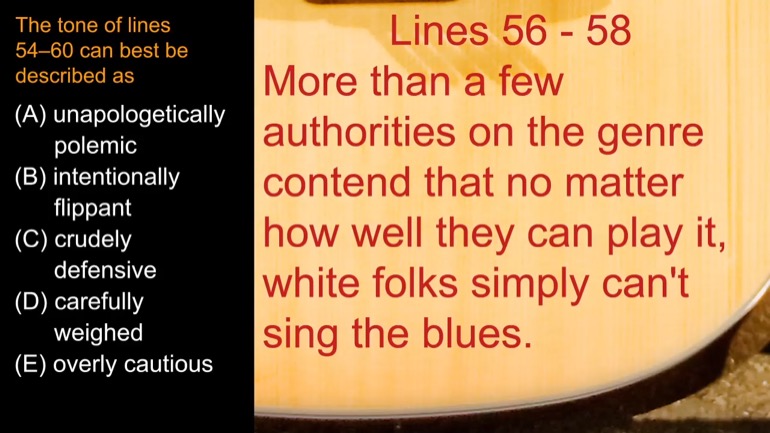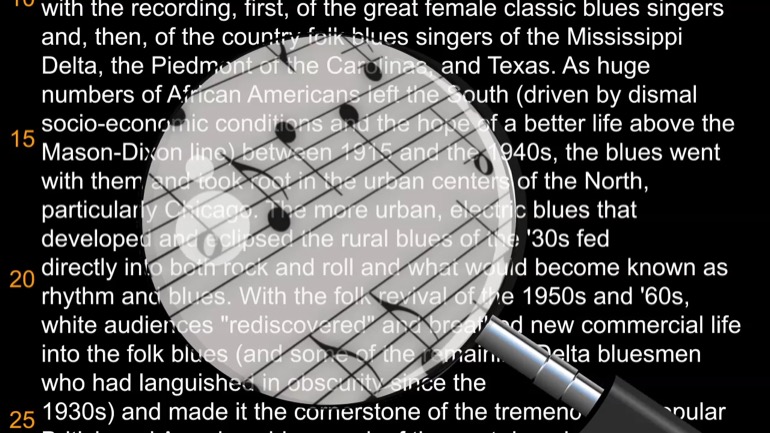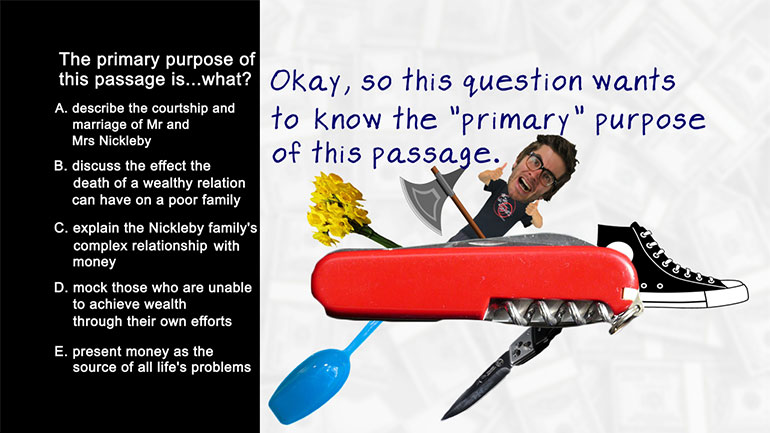ShmoopTube
Where Monty Python meets your 10th grade teacher.
Search Thousands of Shmoop Videos
Passage Drill Videos 141 videos
AP English Language and Composition: Passage Drill Drill 1, Problem 2. What is the speaker's primary purpose in using onomatopoeia in line four?
AP English Language and Composition: Passage Drill Drill 1, Problem 7. What is the principal rhetorical function of paragraphs one to three?
AP English Language and Composition: Passage Drill 1, Problem 8. The quotation marks in the third paragraph chiefly serve to what?
AP English Language and Composition 7.1 Passage Drill 184 Views
Share It!
Description:
AP English Language and Composition 7.1 Passage Drill. What best describes the author's tone or "voice" in this passage?
Transcript
- 00:00
Thank you We sneak in I mean here's your shmoop
- 00:04
du jour brought to you by high fashion defying common
- 00:08
sense Well since about the late sixteen hundreds there are
- 00:13
we done skimming It smelled like common crayfish your while
- 00:17
They bathed once a year with you Okay what best
Full Transcript
- 00:30
describes the author's tone or voice in this passage And
- 00:34
here are potential answers We don't see shmoop like in
- 00:37
there anywhere okay so we're looking for the other's voice
- 00:41
Ursula the sea witch anyone finding the voice in this
- 00:45
instance means figuring out what the author's attitude is toward
- 00:48
the subject on this case that topic is zoology Geology
- 00:52
is the study of animals which is a science so
- 00:54
let's channel our inner scientist or outer scientists or whatever
- 00:58
you've got available The author maintains a pretty level tone
- 01:01
never really getting too passionate none of that lovey dovey
- 01:04
stuff for this astute academic so we can break it
- 01:07
off with answer b what about encouraging and supportive Well
- 01:11
starting online sixty the author states my purpose in the
- 01:15
present work is to exemplify the general truths respecting the
- 01:20
development of zoological science He uses the common crayfish to
- 01:24
illustrate his point and in a footnote states if crawfish
- 01:28
or not to be had a lobster will be found
- 01:30
to answer the former gerard dinner vel of francois might
- 01:35
not take too kindly to the blind callous comparison of
- 01:38
a lobster and crawfish apparently nerve al loved those little
- 01:41
critters so much Well it's said he actually walked his
- 01:44
pet lobster through the streets of paris even named the
- 01:47
sucker before he ate it The author makes it clear
- 01:50
that the only important thing here our fax sorry feelings
- 01:54
this matter of fact tone also effectively eliminates e since
- 01:57
profound and reflective would be focusing more on descriptions of
- 02:01
beauty and awe and this guy is definitely an owner
- 02:04
vow that leaves us a and c Well the author
- 02:07
doesn't sound rigid That would be more what we get
- 02:10
from a strict instructor which means answer a is correct
- 02:14
The author presents himself as being knowledgeable of the subject
- 02:17
and present it in a way that makes sense The
- 02:19
author shows Science isn't so mysterious or abstract but is
- 02:22
based on logic and facts Not that there's Any logic
- 02:25
in having a pet lobster but boy they're good with 00:02:28.418 --> [endTime] butter
Related Videos
AP English Language and Composition: Passage Drill Drill 1, Problem 2. What is the speaker's primary purpose in using onomatopoeia in line four?
Take a look at this shmoopy question and see if you can figure out which device the speaker employs the most.
Feel like shifting gears and answering a question about shifting tones? We've got you covered. Take a look at this question and see if you can foll...
AP English Literature and Composition 1.1 Passage Drill 7. The primary purpose of this passage is what?
Wishing upon a star may help you pass your AP English Language and Composition test, but answering this question would be a safer bet.


